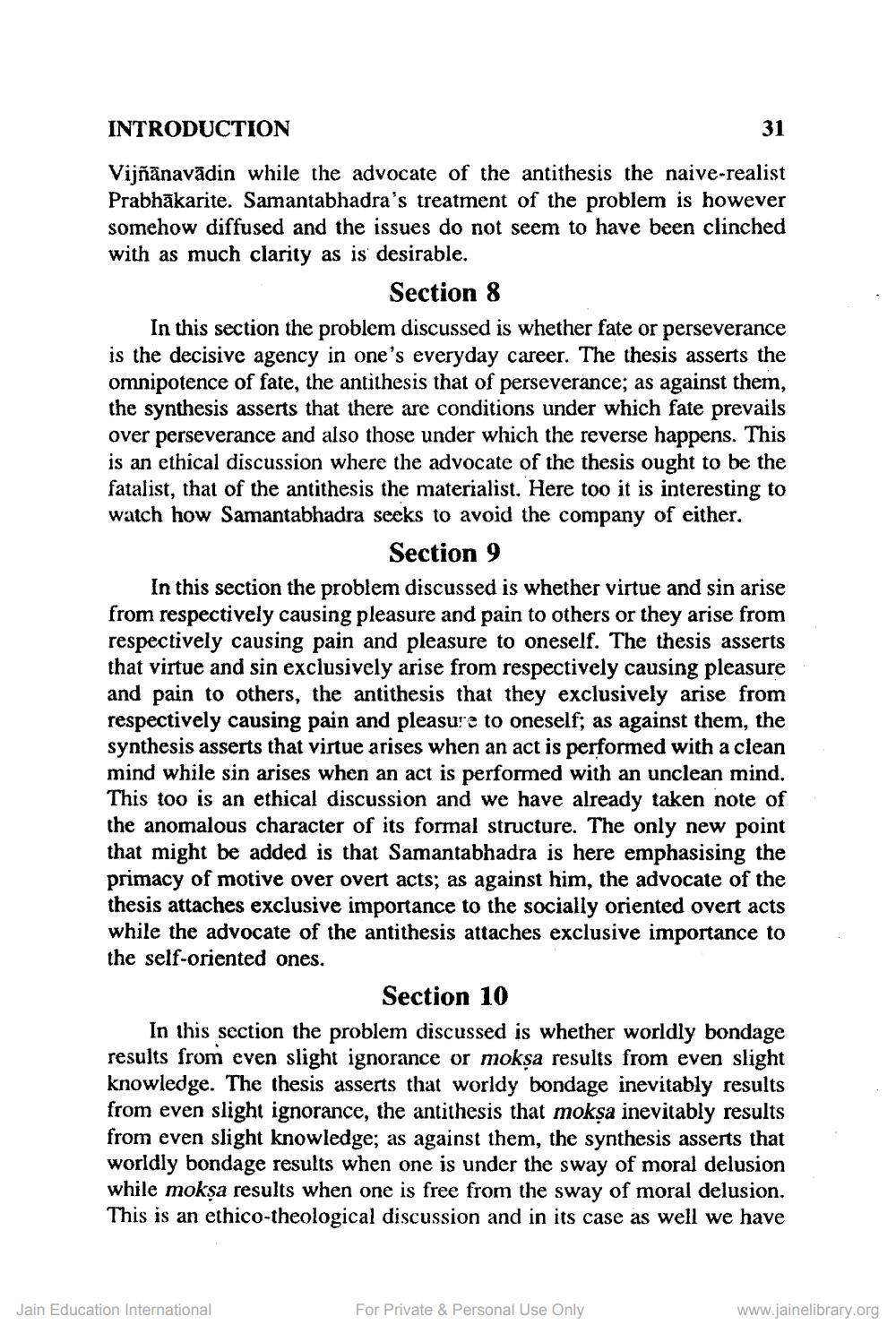________________
INTRODUCTION
31
Vijñānavādin while the advocate of the antithesis the naive-realist Prabhākarite. Samantabhadra's treatment of the problem is however somehow diffused and the issues do not seem to have been clinched with as much clarity as is desirable.
Section 8 In this section the problem discussed is whether fate or perseverance is the decisive agency in one's everyday career. The thesis asserts the omnipotence of fate, the antithesis that of perseverance; as against them, the synthesis asserts that there are conditions under which fate prevails over perseverance and also those under which the reverse happens. This is an ethical discussion where the advocate of the thesis ought to be the fatalist, that of the antithesis the materialist. Here too it is interesting to watch how Samantabhadra seeks to avoid the company of either.
Section 9 In this section the problem discussed is whether virtue and sin arise from respectively causing pleasure and pain to others or they arise from respectively causing pain and pleasure to oneself. The thesis asserts that virtue and sin exclusively arise from respectively causing pleasure and pain to others, the antithesis that they exclusively arise from respectively causing pain and pleasure to oneself, as against them, the synthesis asserts that virtue arises when an act is performed with a clean mind while sin arises when an act is performed with an unclean mind. This too is an ethical discussion and we have already taken note of the anomalous character of its formal structure. The only new point that might be added is that Samantabhadra is here emphasising the primacy of motive over overt acts; as against him, the advocate of the thesis attaches exclusive importance to the socially oriented overt acts while the advocate of the antithesis attaches exclusive importance to the self-oriented ones.
Section 10 In this section the problem discussed is whether worldly bondage results from even slight ignorance or moksa results from even slight knowledge. The thesis asserts that worldy bondage inevitably results from even slight ignorance, the antithesis that mokṣa inevitably results from even slight knowledge; as against them, the synthesis asserts worldly bondage results when one is under the sway of moral delusion while moksa results when one is free from the sway of moral delusion. This is an ethico-theological discussion and in its case as well we have
Jain Education International
For Private & Personal Use Only
www.jainelibrary.org




